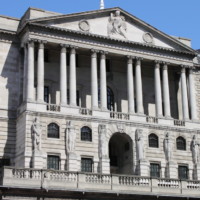
Speaking at a conference organised by the Institute of Chartered Accountants in England and Wales (ICAEW), Pill acknowledged that these “were challenging times for the economy, and with inflation having run into double digits, it was a difficult time for business and individuals”.
Inflation hit a 40-year high of 11.1 per cent in November and has been been hitting double figures on and off over the course of the year.
He highlighted the fact that the dramatic rise in European wholesale gas prices was a key driver for the stark uplift in the inflation figure.
He said: “The rise in prices translated into substantial higher utility bills and these have had a dramatic impact on inflation. Prices have risen by more that a 1,000 per cent and this have a direct effect on inflation as well as on household income and spending power. It is slowing the economy down.”
Inflation to level off and come down
However, he went on to say that a stabilising of energy prices would see inflation being to come down relatively swiftly.
He said: “If it’s the case that gas prices stabilise and then slowly begin to come off, we are expecting to see headline inflation tail off in the second half of next year, in fact quite rapidly.”
But Pill warned that the Bank would be keeping an eye on the labour market and the impact that continued high employment and wage growth would have on inflation.
“Very low levels of unemployment and the association with the mid-1970s is not entirely reassuring from an inflation point of view. The labour market remains tight with some momentum in wage developments.
“The reason for tightness is largely due to a lack of labour supply. In particular, people in the 50 to 65 age group, relative to pre-Covid levels, are having a higher level of inactivity not being in a job and not looking for work.”
Pill’s statement follows an speech last week in which a member of the Bank’s Monetary Policy Committee (MPC) said the BoE would consider cutting the base rate if the economy changes against expectations.
Dave Ramsden, deputy governor, said during a speech at the central bank’s Watchers’ Conference: “I favour a watchful and responsive approach to setting policy.
“Although my bias is towards further tightening, if the economy develops differently to my expectation and persistence in inflation stops being a concern then I would consider a case for reducing bank rate, as appropriate.”
Meanwhile, in related news, inflation in the Eurozone fell for the first time in 17 months. The figure dropped from a record 10.6 per cent in October to 10 per cent in November, according to data from the EU’s statistics agency on Wednesday.
















